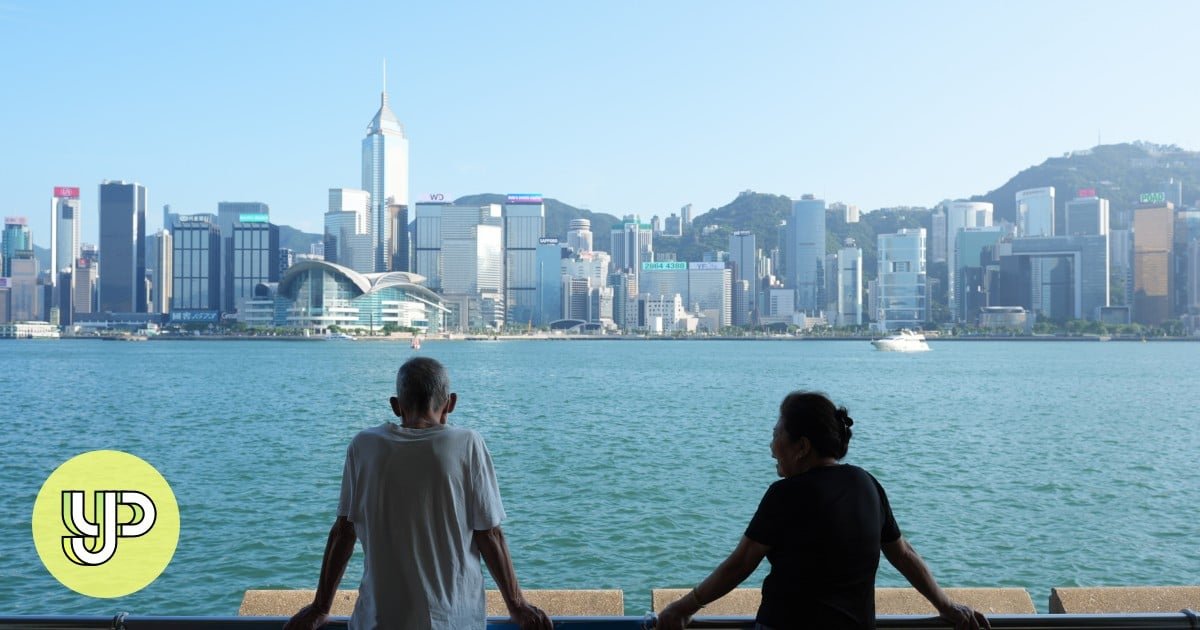Deep Dive delves into hot issues in Hong Kong and mainland China. Our easy-to-read articles provide context to grasp what’s happening, while our questions help you craft informed responses. Check sample answers at the end of the page.
Hong Kong authorities have announced a wide range of measures to tap into the multibillion-dollar silver economy.
These include steps to boost spending and develop tailor-made products for the elderly. They also want to strengthen insurance protections to encourage older residents to re-enter the job market.
Deputy Chief Secretary Warner Cheuk Wing-hing is the leader of a new working group aimed at harnessing the economic benefits of the city’s ageing population.
“The amount of spending by people aged 60 and above reached about HK$342 billion in 2024, about 11 per cent of the city’s GDP. Economic advisers estimate the figure will reach HK$496 billion by 2034,” he said.
“The elderly make up a large proportion of Hong Kong‘s population and have certain economic conditions and purchasing power. They are a huge consumer group that cannot be ignored, and they create a huge demand for products and services related to the silver economy.”
He said the plan could boost Hong Kong’s economy and drive overall economic development. Promoting high-quality “silver products” and services could also help the elderly enjoy the results of Hong Kong’s development.
Cheuk said the measures would cover spending by the elderly and developing the “silver industry” and related financial products. They would also take steps to welcome residents aged 50 and above back into the labour market.
Older people in Hong Kong, with their savings, greater awareness of quality of life and willingness to spend on themselves, are increasingly recognised as an emerging consumer market. According to official estimates, people aged 65 and over will make up more than a third of the population by 2043.
The government will promote products targeting the elderly at major exhibitions. Restaurants would also be encouraged to offer discounts and special meals for senior citizens in the third quarter of the year.
Authorities will encourage the elderly to rejoin the job market by launching dedicated retraining courses. They will also review cash and award incentives for older workers and the companies that hire them.
Lawmaker Frankie Ngan Man-yu welcomed the government’s efforts but urged authorities to repurpose some job centres to focus on elderly employment.
Ngan said Hong Kong’s labour force participation rate for people aged 55 to 64 was estimated at 58.6 per cent. This is lower than that of other advanced economies.
Staff writers
Question prompts
1. According to the news, which of the following statements are true?
(1) The Hong Kong government plans to develop specialised products and strengthen insurance protection to support the elderly.
(2) The amount of spending by people aged 60 and above accounted for about 11 per cent of Hong Kong’s GDP in 2024.
(3) The silver economy plan does not include measures to encourage elderly residents to rejoin the workforce.
(4) Dedicated retraining courses and incentive reviews are part of the government’s strategy to help older residents re-enter the job market.
A. (1), (2) only
B. (2), (4) only
C. (1), (3) only
D. (3), (4) only
2. List TWO reasons why the ageing population in Hong Kong is being recognised as an emerging consumer market.
3. To what extent do you agree these new measures could help senior citizens re-enter the job market? Explain using the news, glossary and your own knowledge.
Photo
People shop on the last day of the Hong Kong Brands and Products Expo in Causeway Bay on January 6, 2025. Photo: Sam Tsang
1. What is being shown in the photo? How does it relate to the information presented in the news?
2. Do you think the government’s measures to encourage elderly spending will be effective? Why or why not? Explain using the news, glossary and your own knowledge.
Glossary
silver economy: economic activities, products and services designed to meet the needs of older people. According to estimates by the Hong Kong government, by 2043, people aged 65 and over would make up more than a third of the city’s population, meaning there is great potential to make money by catering to this market.
GDP: stands for gross domestic product. It measures the monetary value of final goods and services produced within a country or territory during a specified period.
purchasing power: the ability of individuals to buy goods and services with their income.
Sample answers
News
1. B
2. Older people in Hong Kong have substantial savings and purchasing power, with those aged 60 and above spending HK$342 billion in 2024. They also have a greater awareness of quality of life and a willingness to spend money on themselves. (accept all reasonable answers)
3. The new measures could significantly help senior citizens re-enter the job market; however, their effectiveness will depend on their implementation. According to the news, the government plans to launch retraining courses and review incentives for older workers and companies that hire them. These steps directly address skill gaps and motivate both seniors and employers.
Ageism and outdated skill sets are common obstacles that older job seekers face. Suppose the retraining programmes are aligned with market needs, for example. In that case, digital literacy, part-time or flexible roles, and public attitudes shifting to value older workers’ experience could have a meaningful impact. However, without proper follow-through, some initiatives might not achieve their full potential. (accept all reasonable answers)
Photo
1. The photo shows elderly Hongkongers shopping for products, which relates to the information in the news about the government’s plans to encourage spending by this age group.
2. Introducing new products and services for the elderly may be an effective way to encourage them to spend. However, the simple fact is that many of them may not have money to spend in the first place. Hong Kong aims to encourage more seniors to return to the workforce, which would give them more disposable income, but it will need to address issues such as poor health and outdated skills. Retraining programmes could help some elderly Hongkongers gain new skills, but it remains to be seen whether these programmes will be effective. There are also other issues to address, such as workplace ageism.
While the government is off to a strong start, continued evaluation and expansion of support systems are needed to ensure real, long-term improvements in elderly employment. (accept all reasonable answers)




